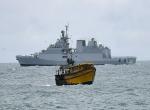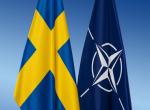The perceived inadequacies of the Ministry of External Affairs(MEA) to handle the ever diverse foreign policy challenges facing India are being publicly aired. Critics are wrong in suggesting that the Indian Foreign Service(IFS) has been ignoring its own deficiencies and resisting an overhaul in recruitment and training procedures, cadre expansion, skill-building in foreign languages, posting and promotion policies etc.
In actual fact, the Ministry has been conscious since long of its functional shortfalls. The N.R. Pillai Committee (1966), the Samar Sen Committee (1983) and the S.K.Lambah report (2002) have recommended structural, administrative and cadre reforms, but the complexity of the problems have resisted easy solutions.
Scenario
Those stirring up a public debate today on the IFS’s deficiencies have taken the cue from an American report which criticizes the service for being small, hobbled by its selection process and inadequate mid-career training, and shunning the use of outside experience. The report advises investment in US-India exchange programmes that build capacity for foreign policy research and proposes steps that both New Delhi and Washington should take to promote India’s rise as a great power.
Its recommendations are largely a rehash of what is already well known; the offer of US collaboration in equipping our diplomats with professional capacities needed to support India’s growing international stature is new. Some articulate Indians impatient with India’s desire to preserve its strategic autonomy endorse such ideas, without thought that training our diplomats in US institutions at formative stages would be undesirable.
Indian diplomats should develop a world view sharply focused on our own national interests, with the mental strength and conviction to defend it. This does not exclude mature diplomats solidly grounded in Indian geo-political perspectives benefitting from exposure to specific foreign programmes.
The ongoing public debate on the MEA’s shortcomings lacks perspective. If the total cadre strength of the IFS remains abnormally small, it is because the system has been against its expansion, relying on perennial financial arguments, the enduring ban on creation of new posts, as well as the unstated reluctance to increase a cadre already seen as a privileged one by other civil services.
A more nuanced view should be taken of the equation between India’s growing diplomatic burden and the IFS’s size. Large portions of India’s diplomatic activity abroad is not within MEA’s remit. The Rules of Business will not allow the Ministry to negotiate FTAs, lead WTO negotiations, deal with the IMF and World Bank, backstop G-20 negotiations, take charge of Climate Change negotiations, sign defence agreements or those in space and atomic energy, decide the country’s energy policies and negotiate energy deals etc.
The MEA can play a supportive role, but even this role is greatly circumscribed by limiting drastically deputations of IFS officers to other Ministries with large international dealings. Those in other Ministries involved in external dealings are part of the larger body of Indian “diplomats” dealing with “foreign policy”. So it is not 700 plus IFS members on whose shoulders all the burden of foreign affairs falls.
The Ministry is no doubt seriously understaffed at New Delhi and abroad in our missions. The ratio between officers at HQs and in missions abroad is highy skewed in Ministry’s disfavour. MEA’s territorial divisions lack sufficient manpower to give requisite attention to all the countries under their charge. Linguistic proficiency suffers because the smallness of the cadre leads to transfer of officers from one station to another irrespective of their language background as available posts have to be often filled by whosoever becomes due for a shift after 3 years of an assignment abroad.
Proposals
Apart from specialization requiring a much larger cadre, officers generally prefer more broad based experience. Specialization in UN work would be attractive as it ensures the New York-Geneva circuit for postings, but that in Africa etc would work against rotation between more comfortable and hardship postings in the interest of equity.
Mid-level lateral entry from think-tanks, universities, media and corporate sector is being proposed for widening MEA’s talent pool. Such entries are on a contractual basis for limited periods would pose no problem, but if absorption in the IFS cadre is intended, existing problems will worsen.
Stricter norms for promotion is an in-service demand also, but while the IAS has numerous parking slots outside the Ministries and at state level for underperformers, what does the MEA do with weeded-out de-motivated officers?
The idea of a separate IFS examination is not new; it has been resisted because of legitimate fears that the service would lose parity with the IAS. It would be desirable to make it compulsory for those wanting to enter the IFS to choose specific subjects for the UPSC examination which bear on diplomacy, including writing the examination in English. The interview marks can be increased as was the case in the past. The MEA would welcome such decisions, but they would have their anti-elitist detractors.
Performance
The IFS has performed well despite handicaps. Critics should point out specific instances where it has failed because of deficiencies in understanding and action. In toto, the Ministry is better run than others, its officers are more committed, largely insulated from political interference and corrupt practices and have a robust sense of India’s national interests.
The IFS is less vulnerable than sections of our political and bureaucratic class to external blandishments and cannot be as easily manipulated. Which is why it is criticized in some western circles for its negative diplomacy, for being wedded to an outdated world view which resists efforts to incorporate India into the West’s sphere of political and intellectual influence. Some who are attacking the MEA today want this resistance to end.
Published Date: 14th August 2012









Post new comment